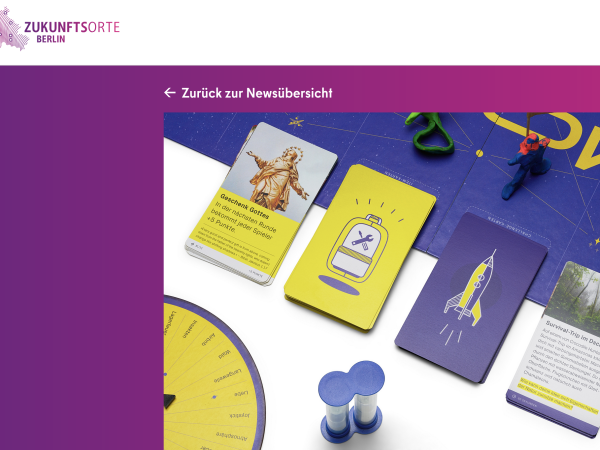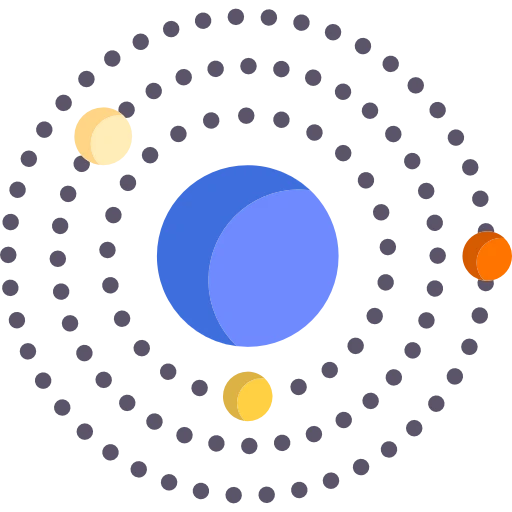

Method
Why Innovation needs more play
It has been scientifically proven that the biggest killer of creative processes is fear. Whether at school or at work. And at the same time, creative thinking is the basis of all progress. And progress doesn't work well with fear. Games create a framework in which there is no need to fear negative consequences.
In march 2022 Till Hasbach, founder of Moonshot had a TEDx talk on TEDx Talk, how to break open creative blockers through play and why innovation and playing have more incommon then you might think.
This is why Moonshot works
1200+
Ideas have now been developed through the use of Moonshot.
35%
is the value by which one round of moonshot improves divergent thinking* (see below).
100
Companies are already using Moonshot on a regular basis.
Innovation Partnerships
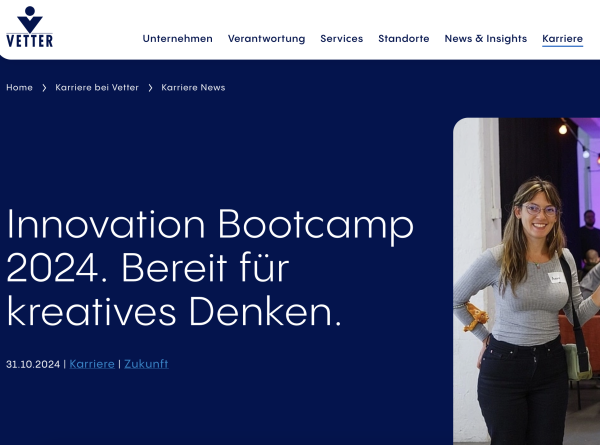
Vetter Pharma Bootcamp Innovation Bootcamp
Together with Vetter Pharma we brought the first Innovation bootcamp to live this fall of 2024 Innovation Bootcamp.
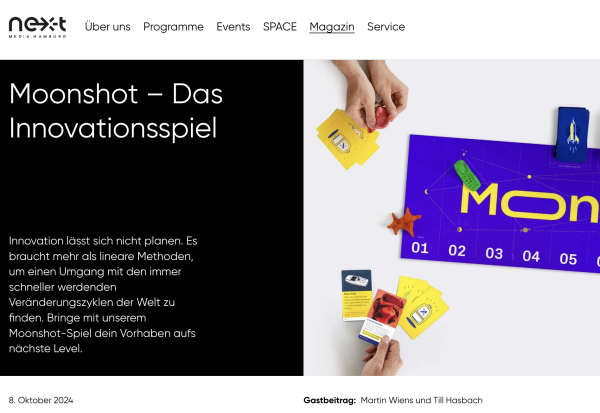
Next Media Edition Media Innovation
Together with Next Media we developed in 2021 a media edition of Moonshot.
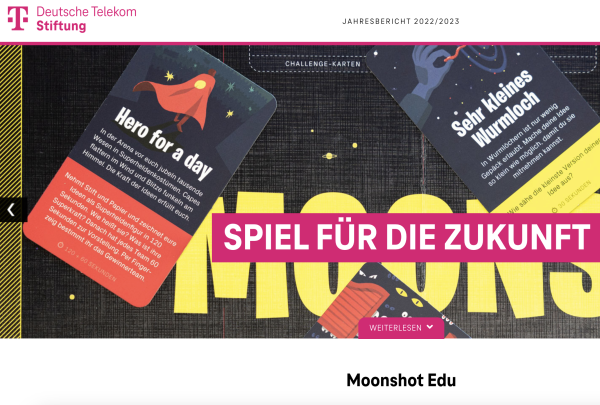
Moonshot EDU 21. century skills in school
In 2021 we have developed Deutschen Telekom Foundation the EDU version of Moonshot which is being used in more than 500 schools currently.
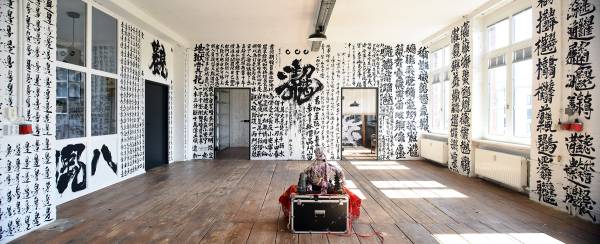
C*space innovation incubator
The coworking space C*space in Berlin Weißensee is not only incubator for new ideas, but since 2025 also Moonshot-Innovation partner.
Focus on your own team
Unlike many other innovation methods, Moonshot doesn't focus on the target group, but on your own team. Moonshot democratizes innovation. Everyone - not just innovation managers - is an active part of the innovation process.
After all, it is above all the employees who deal with the company's own services and products on a daily basis. They are also the people who have to realize innovations. They are the ones who need the courage and desire to ask good questions and express absurd ideas. To do this, it helps to be able to give good feedback as well as to accept it, to be capable of presenting an idea in 60 seconds and to have the ability to juxtapose things that don't actually belong together. This means that even prior to the target group, your own employees are the most important people in the innovation process. They must be intrinsically motivated and empowered to want to do something better.

Finding new ideas is inspiring
Moonshot is not primarily about solving problems, but about inspiring ideas, spaces of possibility and the desire to create. Moonshot draws creative power from the thoughts and ideas of its own employees: What can I do? What do I think about? What do I enjoy? What can we achieve together?
For this reason, the ideas developed with the wheel in Moonshot must always be seen for what they are: Thought experiments that help us to see the world a little differently. Prototypes that help us to understand ourselves and the team better and innovation metaphors that trigger sustainable innovation processes with new impulses.
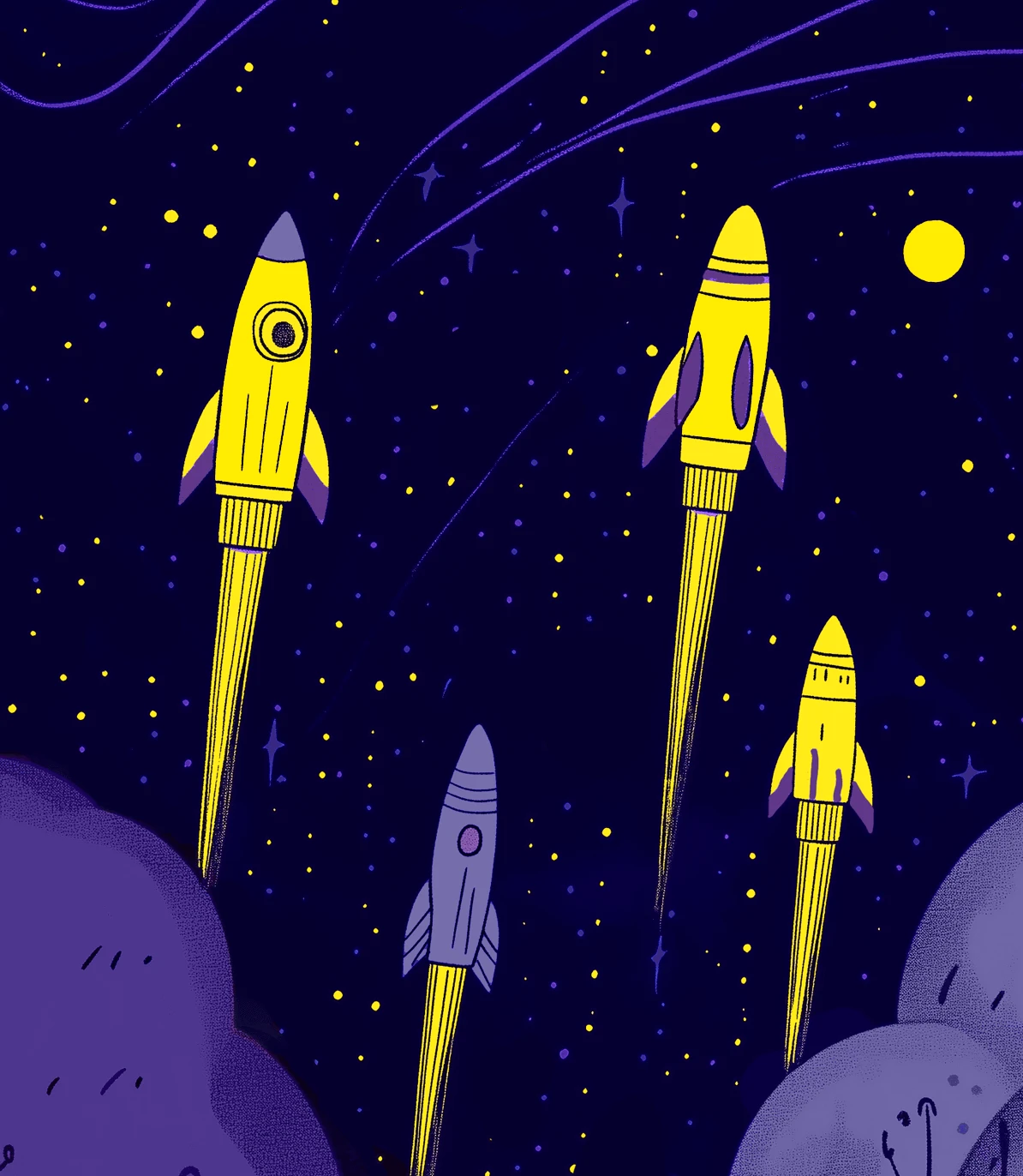
Think outside the box
In Moonshot, fictitious business models and ideas are often developed first. At first glance, they sometimes have nothing to do with the core business, are absurd or even utopian. But this is precisely what creates the mental freedom to break out of the restrictions of everyday life.
Moonshot teaches the creative skills for this: Embrace all ideas. Think bigger, avoid overthinking. Recombine. Dare to start.
Most of the time, when we try to solve problems in a direct way, we always come up against the same mental blocks and thus also similar ideas. Only when we dare to leave the comfortable path and venture into the jungle of challenges, surprises and new impulses do we gain new insights. And thus awaken the creative will to develop ideas that really inspire.
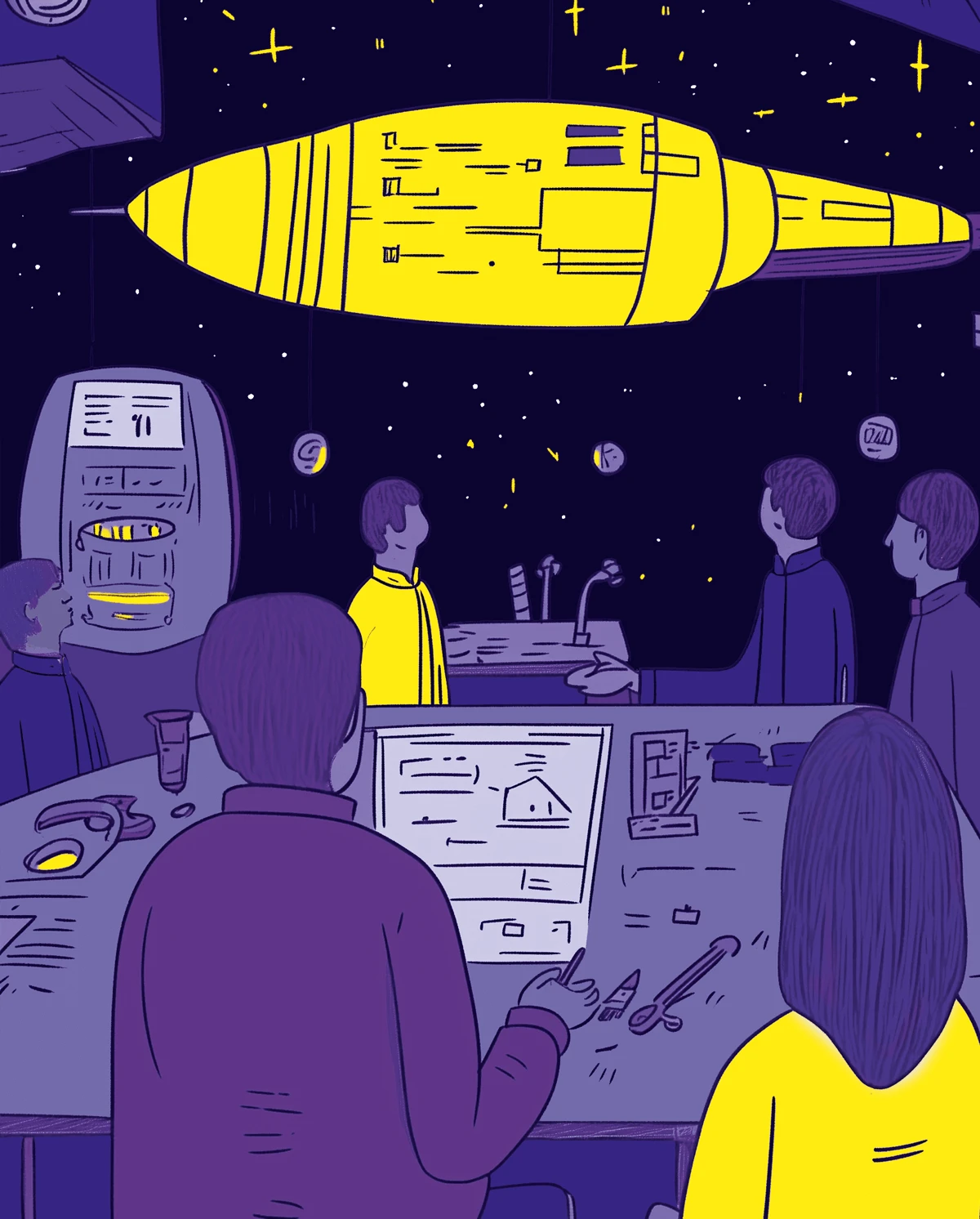

Research

Moonshot is based on the findings of leading scientists in the fields of innovation, creativity research and game research
👉 Theresa Aimable, Harvard School of Business: Why intrinsic motivation is essential for creativity processes see more
👉 Mihaly Csikszentmihalyi, psychologist, University of Chicago: How flow can be achieved and how a state of flow helps us come up with better ideas – see more
👉 Steward Brown, National Institute of play: The power of play and how playful thinking improves the culture of innovation. see more
👉 *Through the Alternative Uses Test Guildford (1967), we measured that participants in moonshot workshops are able to think 35% more divergently than before the workshop. We will soon be making the results available in a small case study.
